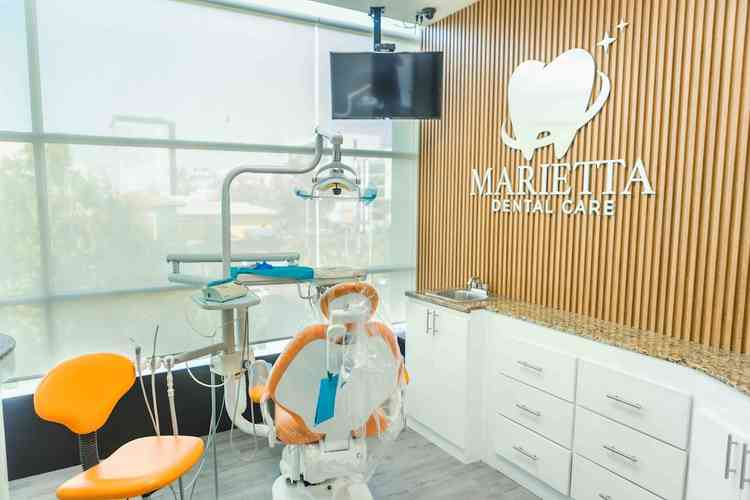Understanding Teeth Implants - What You Need To Know

Prathyusha Itikarlapalli
- Content Writer

Table of contents
None
Natural teeth are finely crafted for human needs by nature. They are essential for biting and chewing food and maintaining facial shape and contour. Further, they gift you a healthy and flawless smile.
Individuals may experience tooth loss or breakage due to age, accidents, and habits like bruxism. This can cause mild to severe problems impacting quality of life.
Fallen teeth can cause a range of problems, including:
- Uneven bite force
- Sunken facial features
- Deteriorating jaw bone
- Gapped, awkward smile
- Changes in speech pattern impacting clarity
Restorations like removable dentures can serve the purposes lost by missing teeth. However, they have disadvantages like discomfort, long adjustment periods, frequent resizing, and slippage.
Many dentists recommend dental implants as a permanent solution to lost or broken teeth. When a tooth is lost, the spaces are left empty.
Dental implants are screw-like medical devices placed in the spaces left by missing tooth roots. These restore functions like smile and chewing abilities.
An oral surgeon or implantologist will perform dental implant surgery. They will drill the titanium or zirconium metal screws into the jaw bone over which they place the natural-looking prosthetic teeth.
However, only some people who have lost their teeth will be ideal candidates for dental implant surgery.
Your dentist will evaluate your oral health first. Based on the initial examination, they will recommend dental implants.
Here are the essential pointers dentists look for in an ideal candidate for dental implant surgery.
Who Will Be the Right Candidate for Dental Implants?
The right candidate for dental implant surgery is one with two or more following features: [1] [2]
- Lost one or more teeth in a jaw
- Enough jawbone to support the upcoming implants
- Free from habits like teeth clenching and sleep grinding
- Has good oral health with gum tissue free from periodontal diseases
- Free from conditions like diabetes, AIDS, treatments requiring chemotherapy, osteoporosis, and soft tissue problems
Now, let’s focus on understanding the pros and cons of dental implants.
Truth About Dental Implants: Knowing Benefits and Risks
Here are the benefits and risks of having dental implants.
Benefits of Dental Implants
Dental implants replace missing tooth roots and:
- Restore bite force, helping you regain chewing ability
- Behaves like a natural tooth root and improves jaw bone health
- Improves smile and facial contour by preventing sunken cheeks
- Prevents jaw bone loss and imparts stability to surrounding teeth
Like any other medical treatment, dental implants also pose some disadvantages. Knowing both pros and cons before choosing a treatment is crucial for an informed decision.
Drawbacks of Dental Implants
Below are the potential risks associated with dental implants:
- Involves surgical procedure
- Surgical site numbness followed by pain
- The requirement of proper care for successful outcomes
- Tooth implant side effects like surgical site infection and healing problems
- Chances of surgical injuries like nerve damage, sinus perforation, and fracture of jawbone.
A deeper insight into dental implants emerges as one dives deeper into understanding the structure.
Dental Implants Insights
Dental implants have three parts: implant, abutment, and artificial teeth.
Visually implants are like metal screw posts made of titanium or zirconium. They are constructed from biocompatible materials. Hence, the patient’s body will not generate local or systemic responses. Implants bear an abutment that serves as a connector to hold artificial teeth on top.
Altogether, these three parts contribute to dental implant's ability to address missing teeth problems.
If you are wondering about the procedure of getting dental implants, worry not! We’ve covered it for you.
Dental Implant Process Step-by-Step
Getting dental implants is not a single-step treatment. Your dentist will follow a set protocol based on the type of implant you require.
Dental Examination
Your dentist will first perform a detailed dental checkup by physical examination, dental and panoramic X-rays, and CBCT.
This is to ensure you have a healthy oral cavity and enough jaw bone to support implants.
If the jaw bone is not sufficient to support implants, your dentist will recommend procedures like:
- Sinus lift
- Bone graft
- Ridge Augmentation
Implant Placement
Implant fixation is a surgical procedure. Your dentist will cut open the jaw tissue to expose the jawbone. Further, they will drill the implant post into the jawbone. This will be carried out under anesthesia.
Osseointegration
After dental implant surgery, the implant site will be left for effective osseointegration. During this stage, the surrounding jaw bone integrates with the implant to impart support. Furthermore, this is crucial for the success of dental implants.
It takes approximately 3-8 months for osseointegration.[3]
Abutment Fixation
Your dentist will attach a small abutment screw to hold the artificial tooth on the implant. This is a minor outpatient surgical procedure under local anesthesia.
Your dentist will cut and lift the jaw tissue that healed over the implant. They will add the connector or abutment and close the incisions. This will heal in 1-2 weeks.
Artificial Teeth Placement
Here is the final step in getting back your flawless, radiant smile. After complete healing, your dentist will attach the natural-looking, artificial teeth to the abutment.
You can choose between fixed or removable prostheses, a single crown, or a complete set of artificial teeth. Your dentist will decide the prosthesis type depending on the number of implants you receive.
With this, your dental implant procedure is complete. Knowing what to expect after implant surgery will help you be prepared!
Envoy Health makes it transparent by covering every minute detail for a smoother dental journey.
Scroll further to understand the post-procedural care for your new teeth!
What Happens Immediately After Dental Implant Surgery?
Immediately after dental implant surgery, your gums will feel numb because of anesthesia.
As the anesthesia wears off, you will experience swelling and discomfort around the implant site.
- You will be prescribed painkillers and antibiotics during the initial days after dental implant surgery. [4]
- Apply an ice pack to reduce swelling.
- For a few days, avoid hot and spicy foods. They may exacerbate discomfort at the sore incisional sites.
- Applying excess pressure can disturb the implant site, affecting healing. Hence, avoid hard, crunchy foods that require strong bite force. Instead, go for non-sticky soft foods like purees and smoothies during the initial days.
- Implant site infection can lead to failure. Hygiene is essential to control infection after surgery. Therefore, maintain proper oral hygiene by careful brushing and flossing.
Wrapping It Up!
Teeth implants are an effective and long-lasting solution for missing teeth. An implantologist will surgically fix the metal implants into your jawbone. Maintaining proper hygiene and following aftercare tips ensures the success of the implants.
References
Disclaimer
The information in this article is for educational purposes only and does not replace medical advice. Always consult your doctor before starting any treatments.
Dental implants are slightly expensive than other dental procedures. Besides, they pose risks of implant site infection, surgical injuries, and implant failures. However, these risks can be mitigated by following aftercare according to dental expert's advice.
So, we partner with the premier healthcare facilities!
Send me the list




